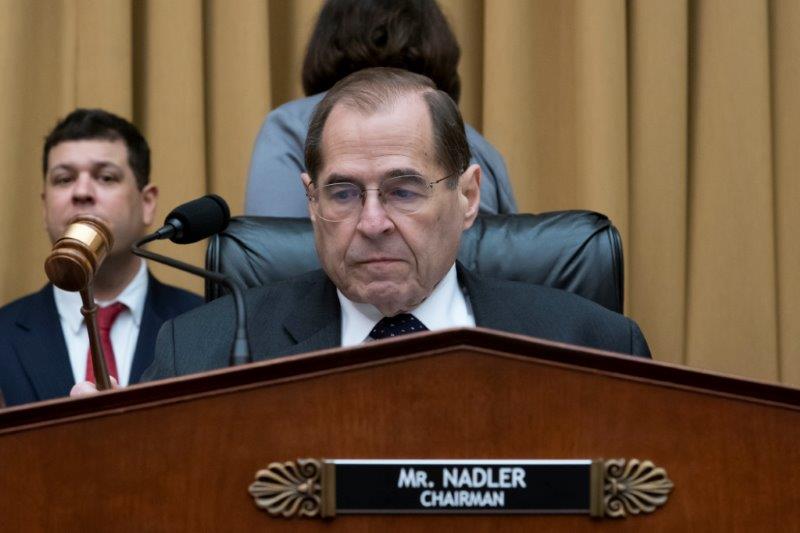(CN) – In their unbounded pursuit of President Donald Trump, White House hopeful Eric Swalwell and a key House Democrat want to make it easier to prosecute presidents who may have committed crimes once they leave office.
U.S. Rep. Swalwell, D-Calif., and House Judiciary Chairman Jerry Nadler introduced legislation Friday that would freeze the statute of limitations for federal offenses committed by presidents before or during their time in office. The move is the latest in the feud between Nadler’s committee and the Trump administration, and one the Democrats hope will allow presidents to be held responsible for misconduct.
"It's a basic American value that no one – not even the president – is above the law," said Swalwell in a statement. “While I disagree with the legal opinion that says a president cannot be indicted during their term in office, Congress can step up right now and change the law to ensure any president can be held accountable for crimes.”
Incensed by the Trump administration’s handling of the Mueller report and its defiance of recently issued House subpoenas, the legislation comes one day after former FBI director James Comey suggested Trump could be indicted once out of office.
The Justice Department has long held that a sitting president cannot be indicted, but the merits of its policy have been under a magnifying glass during Trump’s first term.
Swalwell, Nadler and Florida Democrat Ted Deutch – all members of the House Judiciary Committee – feel the policy could allow Trump to get away with crimes he may have committed over the last several years since the five-year statute of limitations for most federal crimes will run out before Trump leaves office. Their solution is to pause the clock on sitting presidents and allow prosecutors to circle back later.

“I have concerns with the Justice Department interpretation that a sitting president cannot be indicted, but if that is the policy, a president who commits a crime before or during their term in office could exploit this loophole and avoid prosecution just because the statute of limitations has run out,” Nadler said. “This is unacceptable. The presidency is not a get-out-of-jail-free card."
The proposal caps a wild week in which Nadler’s committee voted to hold Attorney General Bill Barr in contempt for ignoring a subpoena regarding underlying documents in the Mueller report. Swalwell has called for Barr to resign and Nadler told CNN that Trump is “disobeying the law” and said the government is in the midst of a “constitutional crisis” over the redacted Mueller report.
White House Press Secretary Sarah Sanders called the contempt vote a “desperate ploy” and announced the White House will claim executive privilege over the full report and its underlying evidence and documents.
“Faced with Chairman Nadler’s blatant abuse of power and at the attorney general’s request, the president has no other option than to make a protective assertion of executive privilege,” Sanders said in a statement.
The Democrats’ bill is unlikely to gain traction in the Republican-led Senate, but the trio believes it’s worth a shot.
“President Trump is living proof of the urgent need to close this loophole," Swalwell said.
Subscribe to Closing Arguments
Sign up for new weekly newsletter Closing Arguments to get the latest about ongoing trials, major litigation and hot cases and rulings in courthouses around the U.S. and the world.








